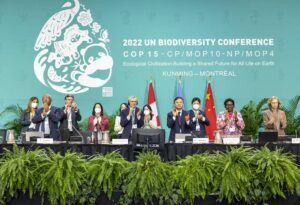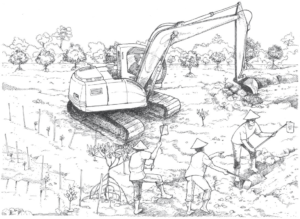Picture credits – IUCN
(Source IUCN)
Conservation efforts for other animals have likely helped protect many reptile species, according to a new study led by NatureServe, the International Union for Conservation of Nature (IUCN), and Conservation International. The study, published in the journal Nature, presents an analysis of the first comprehensive extinction risk assessment for reptiles on The IUCN Red List of Threatened Species™, which found that at least 21% of all reptile species globally are threatened with extinction.
For the Nature study, a diverse research team, representing 24 countries across six continents, analyzed the conservation needs of 10,196 reptile species in comparison with mammals, birds, and amphibians. Reptiles in the study include turtles, crocodiles, lizards, snakes, and tuatara, the only living member of a lineage that evolved in the Triassic period approximately 200-250 million years ago.
The research revealed that efforts to conserve threatened mammals, birds, and amphibians are more likely than expected to co-benefit many threatened reptiles. Although reptiles are well known to inhabit arid habitats such as deserts and scrubland, most reptile species occur in forested habitats, where they –and other vertebrate groups – suffer from threats such as logging and conversion of forests to agriculture. The study found that 30% of forest-dwelling reptiles are at risk of extinction, compared with 14% of reptiles in arid habitats.
“I was surprised by the degree to which mammals, birds, and amphibians, collectively, can serve as surrogates to reptiles,” said Dr. Bruce Young, co-leader of the study and Chief Zoologist and Senior Conservation Scientist at NatureServe. “This is good news because the extensive efforts to protect better-known animals have also likely contributed to protecting many reptiles. Habitat protection is essential to buffer reptiles, as well as other vertebrates, from threats such as agricultural activities and urban development.”
The study also highlighted what we stand to lose if we fail to protect reptiles. If each of the 1,829 threatened reptiles became extinct, we would lose a combined 15.6 billion years of evolutionary history—including countless adaptations for living in diverse environments.















